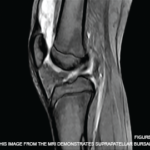 EULAR 2020 e-CONGRESS—Systemic rheumatic diseases can affect many organ systems; among the most important of these is the vascular system. Such conditions as atherosclerosis and venous thromboembolic disease can be influenced by inflammatory activity, and treatment of rheumatologic conditions may play a role in increasing or decreasing the risks of such diseases. At EULAR 2020, Zoltán Szekanecz, MD, PhD, professor and head of the rheumatology department at the University of Debrecen Medical and Health Sciences Center, Hungary, discussed these topics in a lecture titled, Arterial and Venous Risks and Management in Inflammatory Rheumatic Diseases.
EULAR 2020 e-CONGRESS—Systemic rheumatic diseases can affect many organ systems; among the most important of these is the vascular system. Such conditions as atherosclerosis and venous thromboembolic disease can be influenced by inflammatory activity, and treatment of rheumatologic conditions may play a role in increasing or decreasing the risks of such diseases. At EULAR 2020, Zoltán Szekanecz, MD, PhD, professor and head of the rheumatology department at the University of Debrecen Medical and Health Sciences Center, Hungary, discussed these topics in a lecture titled, Arterial and Venous Risks and Management in Inflammatory Rheumatic Diseases.
Dr. Szekanecz began by noting first and foremost that risk assessment of vascular disease should begin with patients’ traditional risk factors, such as family history, obesity, hypertension, diabetes mellitus, smoking and so forth. After these factors are considered, it’s important to look at the features of rheumatologic disease that may further increase the risks of such conditions as blood clots or coronary artery disease. It has been known for many years that rheumatoid arthritis (RA) and systemic lupus erythematosus (SLE) significantly enhance the risk of atherosclerotic cardiovascular disease. Recent work on these diseases indicates the primary contributor to the initiation and progression of atherosclerosis in RA and SLE is altered immune system function, with changes in cytokine levels and innate immune responses, autoantibodies, adipokines, dysfunctional lipids and oxidative stress playing a role.1
In RA, biomarkers of inflammation can help predict the progression of atherosclerotic disease. Example: In an observational cohort study of 150 RA patients who underwent computed tomography angiography for evaluation of coronary atherosclerosis, 101 had repeat imaging within 5–10 years and time-averaged C-reactive protein (CRP) was a significant predictor of coronary artery plaque progression.2 Given this finding, several studies have looked at the effects of disease-modifying anti-rheumatic drugs (DMARDs) to protect against cardiovascular disease. Dr. Szekanecz cited several studies that indicate how methotrexate appears to have such protective effects among patients with RA and psoriatic arthritis.3-5
This work has led to the hypothesis that methotrexate may be helpful for patients without rheumatologic conditions. However, a large, randomized, placebo-controlled clinical trial found low-dose methotrexate (15–20 mg weekly) did not reduce interleukin (IL) 1-β, IL-6, high sensitivity CRP or cardiovascular events more than placebo among patients with established coronary artery disease and either diabetes mellitus or metabolic syndrome, or both.6
With regard to biologic DMARDs, cross-sectional and retrospective analyses have shown that tumor necrosis factor inhibitor (TNFi) and non-TNF biologic use is associated with a low risk of arterial thromboembolic events and may be potentially helpful to patients without rheumatologic disease.
In a landmark 2017 study, researchers randomized more than 10,000 patients with previous myocardial infarction and a high sensitivity CRP level of 2 mg or more per liter to receive one of three doses of the IL-1-β inhibitor canakinumab (i.e., 50 mg, 150 mg or 300 mg administered subcutaneously every three months) or placebo. The researchers found that 150 mg of canakinumab given every three months led to a significantly lower rate of recurrent cardiovascular events than placebo, independent of lipid-level lowering.7
Interestingly, the maker of canakinumab—Novartis—submitted proposals in the U.S. and E.U. to approve the use of canakinumab in treating cardiovascular disease. However, the U.S. Food and Drug Administration (FDA) rejected the application due to insufficient evidence supporting the proposed indication. Novartis withdrew its application to European regulators.8
Thromboembolic Disease
With respect to thromboembolic disease, Dr. Szekanecz said several studies have shown an increased risk of venous thromboembolic disease in patients with RA, psoriatic arthritis and ankylosing spondylitis.9-11 This subject has been of particular importance with regard to Janus kinase (JAK) inhibitors.
In July 2019, the FDA issued a safety warning about an increased risk of blood clots and death with the 10 mg twice-daily dose of tofacitinib. This warning was based on a safety trial required by the FDA when it approved tofacitinib for treatment of RA. (The 10 mg, twice-daily dose has not been approved for RA patients, but this dose is approved for patients with ulcerative colitis.) Similar concerns have arisen over baricitinib.12
Dr. Szekanecz discussed a meta-analysis of 26 randomized controlled trials of JAK inhibitors. This analysis found no significant change in cardiovascular risk for JAK inhibitor-treated patients with RA in the short term. However, post-marketing data are needed to evaluate risk over longer periods of time and at higher doses.13
Based on the information to date, EULAR has issued recommendations describing how venous thromboembolic disease has emerged as a new safety issue for tofacitinib, baricitinib and upadacitinib. Clinicians should take into account risk factors for venous thromboembolic disease before initiating patients on these treatments. Risk factors that should be considered include advanced age, history of prior venous thromboembolic disease, elevated body mass index and hormone-replacement therapy.14
During the question-and-answer segment of the lecture, Dr. Szekanecz touched on several interesting concepts, including the theoretical benefits of leflunomide with respect to cardiovascular disease. No large trials have been conducted on this topic, but leflunomide is used as part of certain drug-eluting stents for patients with coronary artery disease. Thus, it’s plausible this medication, when taken systemically, has the potential to act similarly to methotrexate in reducing cardiovascular events. Dr. Szekanecz also noted that IL-6 inhibitors, such as tocilizumab, have been associated with increased lipid parameters and that routine monitoring of the lipid panel is important to continually assess a patient’s cardiovascular disease risk and discuss if other medications, such as a statins, are indicated.
The talk by Dr. Szekanecz provided very helpful and clinically relevant information for clinicians to use in everyday practice, and the themes discussed are of great timeliness. As obesity and other risk factors for cardiovascular disease continue to increase worldwide, rheumatologists must be vigilant in screening for these conditions, and help patients not just with their autoimmune disease, but with their overall health.
Jason Liebowitz, MD, completed his fellowship in rheumatology at Johns Hopkins University, Baltimore, where he also earned his medical degree. He is currently in practice with Skylands Medical Group, N.J.
References
- Skaggs BJ, Hahn BH, McMahon M. Accelerated atherosclerosis in patients with SLE—mechanisms and management. Nat Rev Rheumatol. 2012 Feb 14;8(4):214–223.
- Karpouzas GA, Ormseth SR, Hernandez E, et al. Biologics may prevent cardiovascular events in rheumatoid arthritis by inhibiting coronary plaque formation and stabilizing high-risk lesions. Arthritis Rheumatol. 2020 Apr 21. Online ahead of print.
- van Halm VP, Nurmohamed MT, Twisk JW, et al. Disease-modifying antirheumatic drugs are associated with a reduced risk for cardiovascular disease in patients with rheumatoid arthritis: A case control study. Arthritis Res Ther. 2006;8(5):R151.
- Roubille C, Richer V, Starnino T, et al. The effects of tumour necrosis factor inhibitors, methotrexate, non-steroidal anti-inflammatory drugs and corticosteroids on cardiovascular events in rheumatoid arthritis, psoriasis and psoriatic arthritis: A systematic review and meta-analysis. Ann Rheum Dis. 2015;74(3):480–489.
- Widdifield J, Abrahamowicz M, Paterson JM, et al. Associations between methotrexate use and the risk of cardiovascular events in patients with elderly-onset rheumatoid arthritis. J Rheumatol. 2019 May;46(5):467–474.
- Ridker PM, Everett BM, Pradhan A, et al. Low-dose methotrexate for the prevention of atherosclerotic events. N Engl J Med. 2019 Feb 21;380(8):752–762.
- Ridker PM, Everett BM, Thuren T, et al. Antiinflammatory therapy with canakinumab for atherosclerotic disease. N Engl J Med. 2017 Sep 21;377(12):1119–1131.
- O’Riordan, Michael. Hopes fade for a CV indication for canakinumab: What’s next for the inflammatory hypothesis? TCTMD.com. 2019 Feb. 1.
- Choi HK, Rho YH, Zhu Y, et al. The risk of pulmonary embolism and deep vein thrombosis in rheumatoid arthritis: A U.K. population-based outpatient cohort study. Ann Rheum Dis. 2013 Jul;72(7):1182–1187.
- Aviña-Zubieta JA, Chan J, De Vera M, et al. Risk of venous thromboembolism in ankylosing spondylitis: A general population-based study. Ann Rheum Dis. 2019 Apr;78(4):480–485.
- Ogdie A, Kay McGill N, Shin DB, et al. Risk of venous thromboembolism in patients with psoriatic arthritis, psoriasis and rheumatoid arthritis: A general population-based cohort study. Eur Heart J. 2018 Oct 14;39(39):3608–3614.
- Harigai M. Growing evidence of the safety of JAK inhibitors in patients with rheumatoid arthritis. Rheumatology (Oxford). 2019 Feb 1;58(Suppl 1):i34–i42.
- Xie W, Huang Y, Xiao S, et al. Impact of Janus kinase inhibitors on risk of cardiovascular events in patients with rheumatoid arthritis: Systematic review and meta-analysis of randomised controlled trials. Ann Rheum Dis. 2019 Aug;78(8):1048–1054.
- Smolen JS, Landewé RBM, Bijlsma JWJ, et al. EULAR recommendations for the management of rheumatoid arthritis with synthetic and biological disease-modifying antirheumatic drugs: 2019 update. Ann Rheum Dis. 2020 Jun;79(6):685–699.
Editor’s note: This article was updated to reflect the correct venue of the presentation, EULAR 2020, the annual European Congress of Rheumatology, which was originally scheduled to be held in Frankfurt, Germany, starting June 3, but was moved to a virtual format due to the COVID-19 pandemic.


